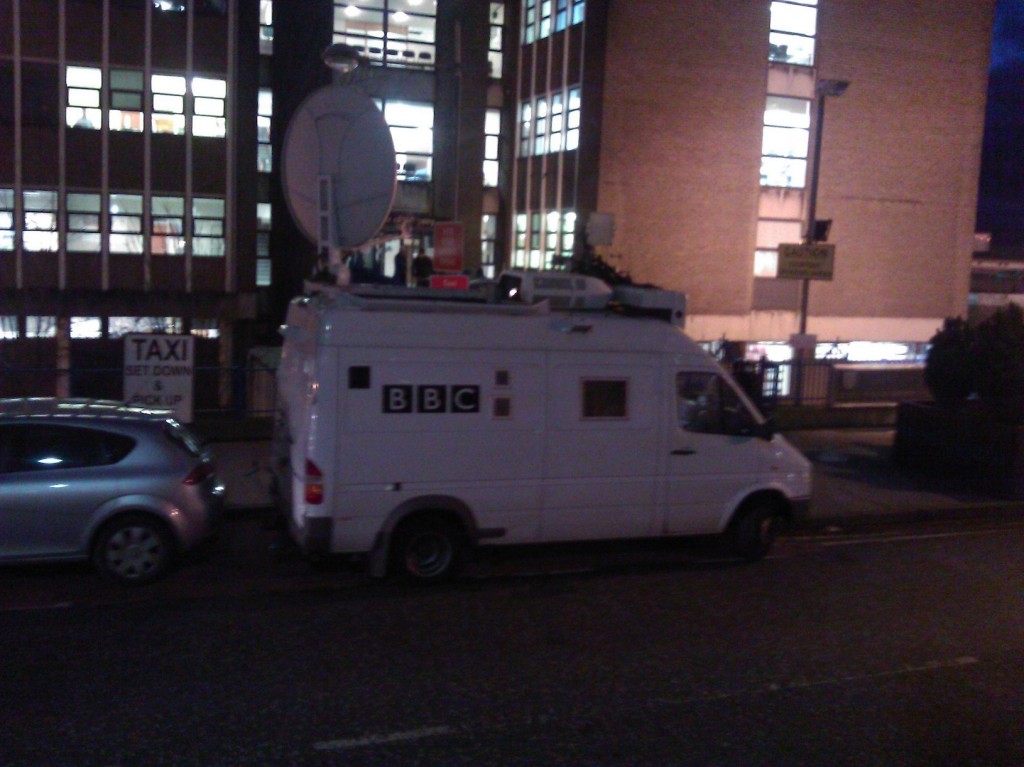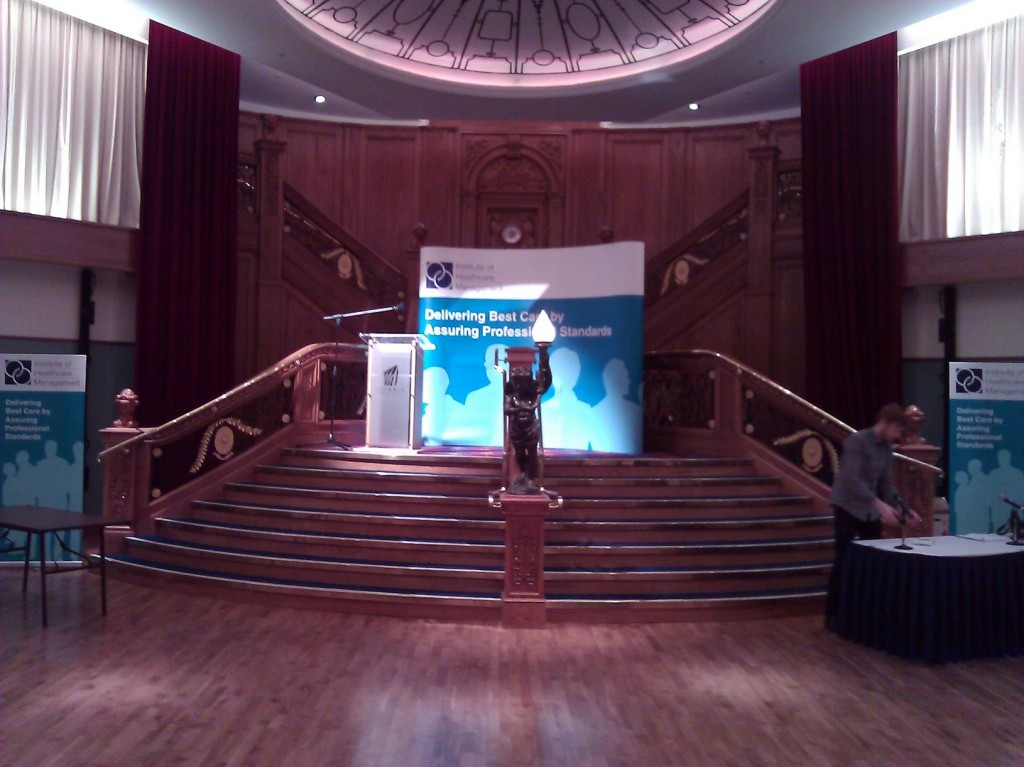I have been inspired by the example of Dr Mark Newbold, CEO of Heart of England FT, to write a weekly diary on my blog. Each weekend I will reflect back on the working week and post some observations and thoughts. I hope you find it interesting! This is the first one…..
Belfast Trust Emergency Department in the spotlight again
The Belfast Trust ED was on BBC Breakfast while I was having my morning coffee at 6.30 am on Monday. I was quite surprised, as after the media storm earlier in the year and the Trust being put under special measures by the Health Minister, things have been relatively quiet from a media point of view.
My experience of working in the health service and then hearing about it in the news led me to suspect the media coverage might not be a full and accurate account of the issue. I also know that a high number of 12-hour waits was one of the problems facing the ED earlier in the year and these are usually due to downstream issues beyond the control of the ED. These have since been massively reduced by redesign of the Acute Medical Take and a new 64-bed AMU.
When I went into work on Monday the media coverage was the subject of discussion in the morning and over coffee. Negative coverage like this does impact staff morale, but even the most junior staff were sceptical about the accuracy of the reporting.
I came out of work on Monday evening to see a BBC outside broadcast van parked outside the hospital. Later that evening I heard Dr Tony Stevens, Belfast Trust Medical Director talking on the news. The story became clearer over the next few days and it transpires that the letter sent by the ED consultants was in advance of a planned meeting with the Chief Executive and Medical Director and so their concerns have been discussed.
Electronic Care Records – as good as we think they’ll be?
On Tuesday morning I was doing a ward round with the SHO and we couldn’t find the notes for one patient. I remarked that this is one problem we wouldn’t have with an electronic care record, because the notes would all be accessed virtually on the nearest PC. The SHO said, “yes I suppose you’re right but I think an ECR would just lead to too many problems, I don’t think it’s a good idea”. This took me by surprise. The SHOs are generally a more digital generation than my own, and electronic care records have become generally accepted as an important step forward in healthcare. So we agreed to ‘hold that thought’ and discuss it over lunch.
The discussion over lunch was revealing and would be important for anyone designing or implementing an electronic care record. Doctors-in-training are a mobile and nomadic group who rotate around various hospitals throughout the UK and often further afield. They therefore have experience of lots of different cultures and systems and are good people to talk to if you want to improve your system and want to hear what works well and what doesn’t.
The feedback from the SHOs was that an ECR brings solutions to old problems but brings its own new problems related to design that isn’t user-centred. They have found the systems they’ve used cumbersome and time-consuming to navigate and found it difficult to access the information they wanted, when they wanted it. They also reminded me that they are 19 sets of notes on our ward and far less PCs, so if all the various doctors, nurses and AHPs wanted to access patient records at the same time there would be a queue for the computers. We could get lots more computers, but there probably isn’t space for them.
Increasing acuity and complexity of hospital patients
By Wednesday there were patients I was looking after that were not yet fit for discharge, but that I couldn’t successfully triage to another specialty due to the complexity of their problems and uncertainty about which specialty they would best fit. This led me to reflect on the increasing complexity, acuity and dependency of patients admitted acutely.
Although I’m speaking from experience and don’t have any hard data to back this up, I’m finding that there is much more work needing done for each patient. And although the patient might not see it, as we aren’t face-to-face with them, we spend all day reading notes, making notes, discussing with other specialists, requesting tests and diagnostics and chasing results. And that’s in addition to the time we spend with the patients and their relatives.
Minister relaxes Belfast Trust special measures
Interestingly, despite the media reports on Monday and Tuesday about problems in Belfast Trust EDs, the Minister announced on Wednesday that he was relaxing the special measures due to the progress made in addressing the specific areas of concern.
Turning the Tide: Resetting the Course of Health & Social Care in Northern Ireland
On Friday I attended the IHM Annual Conference in the Titanic Suite at Titanic Belfast. The venue was fantastic and the staff there deserve a mention for being so well turned-out, polite and efficient. I think the building and its facilities are something for the people of Northern Ireland to be proud of.
The gala dinner and awards ceremony happened on Thursday evening and the importance of these awards was acknowledged at the conference. They recognise the sacrifice and contribution individuals make to improve services, encourage others, and spread good news.
Throughout the day we heard of the Minister’s vision to make NI a world leader in health & social care, and of the Transforming Your Care vision and strategy. Overall the conference set out a vision for the future and discussed the significant challenges in delivering this. It was good to hear the politicians voice their support for the change and state that they will continue to support difficult decisions when it gets tough politically. I hope they can keep to this promise.
I have only recently embraced Twitter and blogging and at the Faculty of Medical Leadership & Management conference in Manchester last month I was introduced to live tweeting which I found stimulating, enjoyable and valuable. However, the healthcare social media scene in NI doesn’t seem as well developed as that in other parts, so I decided to promote the idea of live tweeting at IHM. Some found the idea novel, some were sceptical, but the IHM Chair and Council members were keen to give it a go. I had already registered the hashtag #IHMNI2012 so with a bit of encouragement we got a live tweet up and going which allowed more people to engage with each other and with the politicians at the event. All-in-all I think the live tweet was a success.
There’s no zealot like a convert and I now hope to encourage the growth of healthcare social media (#hcsm) in Northern Ireland.



Connect With Me